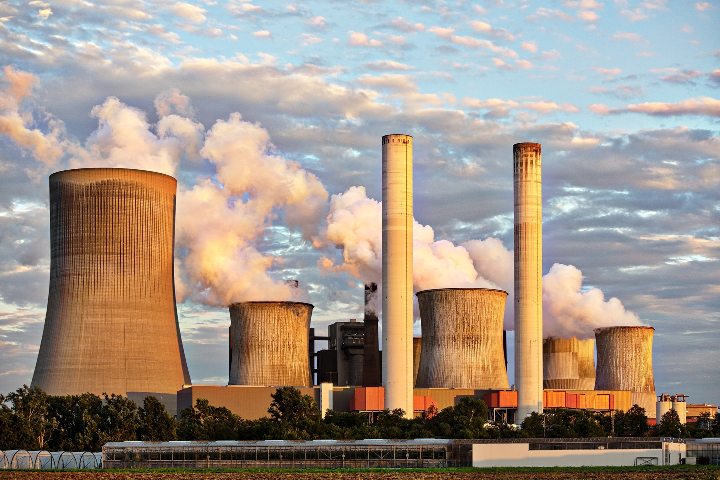25 pct premature deaths due to man made pollution, environment damage: UN

A quarter of all premature deaths and diseases worldwide are due to manmade pollution and environmental damage, the United Nations said Wednesday in a landmark report on the planet's parlous state. Deadly smog-inducing emissions, chemicals polluting drinking water, and the accelerating destruction of ecosystems crucial to the livelihoods of billions of people are driving a worldwide epidemic that hampers the global economy, it warned.
The Global Environment Outlook (GEO) -- a report six years in the making compiled by 250 scientists from 70 nations -- depicts a growing chasm between rich and poor countries as rampant overconsumption, pollution and food waste in the developed world leads to hunger, poverty and disease elsewhere. As greenhouse gas emissions continue to rise amid a preponderance of droughts, floods and superstorms made worse by climbing sea levels, there is a growing political consensus that climate change poses a future risk to billions.
World leaders in 2015 came up with the Paris climate deal, which saw each nation promise action to cut emissions in a bid to limit global temperature rises to 1.5C (2.7 Fahrenheit). But the health impacts of pollution, deforestation and the mechanised food-chain are less well understood.
Nor is there any international agreement for the environment close to covering what the Paris accord does for the climate. The GEO compiles a litany of pollution-related health emergencies.
It said that poor environmental conditions "cause approximately 25 per cent of global disease and mortality" -- around 9 million deaths in 2015 alone. Lacking access to clean drinking supplies, 1.4 million people die each year from preventable diseases such as diarrhoea and parasites linked to pathogen-riddled water and poor sanitation.
Chemicals pumped into the seas cause "potentially multi-generational" adverse health effects, and land degradation through mega-farming and deforestation occurs in areas of Earth home to 3.2 billion people. The report says air pollution causes 6-7 million early deaths annually.
And the way Earth is set, unchecked use of antibiotics in food production will see drug-resistant superbugs become one of the largest causes of premature death by mid-century. "Urgent action at an unprecedented scale is necessary to arrest and reverse this situation," said a note to policymakers accompanying the report.
"If you have a healthy planet it supports not only global GDP but it also supports the lives of the very poorest because they depend on clean air and clean water," Joyeeta Gupta, GEO co-chair, told AFP. "If you turn that around, an unhealthy system has massive damage on human lives."
The report called for a root-and-branch detoxifying of human behaviour while insisting that the situation is not unassailable. Food waste for instance, which accounts for 9 per cent of global greenhouse gas emissions, could be slashed.
The world currently throws away a third of all food produced. That figure is fuelled by 56 per cent in richer nations going to waste. "Everyone is saying that by 2050 we have to feed 10 billion people, but that doesn't mean we have to double production," Gupta said.
"If we reduce our waste and perhaps have less meat you could immediately reduce that problem." At the same time, she acknowledged, "that would require changes in the way we live." The report also called for a rapid drawdown in greenhouse gas emissions and pesticide use to improve air and water quality.
"Human behaviour is due to the environment. It's the way we eat. It's the way we get around, it's the energy we use and it's how we build our homes," GEO co-chair Paul Ekins said. The report estimates that global infrastructure will increase by two thirds by 2050. "The way it is built will determine what kind of world we have," Ekins said. The GEO draws on hundreds of data sources to calculate the environmental impact on over 100 diseases.
It's unveiling at the UN Environment Assembly in Nairobi is likely to add to the debate over who bears the greatest responsibility for the damage already borne by Earth. Sources close to the negotiations told AFP some developed nations, led by the United States, had threatened not to "welcome" the GEO report -- a procedural but nonetheless significant hurdle if nations are to agree on the necessary cuts in waste, overconsumption and pollution.
Gupta said that nations, however big or small, would all have to adapt to the environmental reality facing every human on the planet. "If you look at land, it's fixed," she said. "If the population is going to go up we have to redistribute, one way or the other. "If you look at freshwater, it's more or less fixed. You have to end up sharing. This is a discourse that many developed countries don't like."
(With inputs from agencies.)
- READ MORE ON:
- Planet Labs
- Planet Earth
- State park
- State Farm
- State of emergency
- Little People
- Swamp People
- White people
- United Nations
- United Nations Headquarters
- Model United Nations
- First Nations
- League of Nations
- Nairobi County
- University of Nairobi
- Mombasa–Nairobi Standard Gauge Railway
- Developing country
- Schengen Area
- World War II
- Computer Science
ALSO READ
Sports World Update: Legal Battles, Signings, and Controversies
Thrilling Overtime Victory Propels Slovakia in World Junior Hockey Championship
Unveiling the World's Largest Maha Mrityunjaya Yantra: A Spiritual Beacon
Māori Honours Recipients in 2025 Celebrate Dedication to Community and Leadership Across Aotearoa
Assam Police Reshuffle Brings New Leadership to Guwahati










